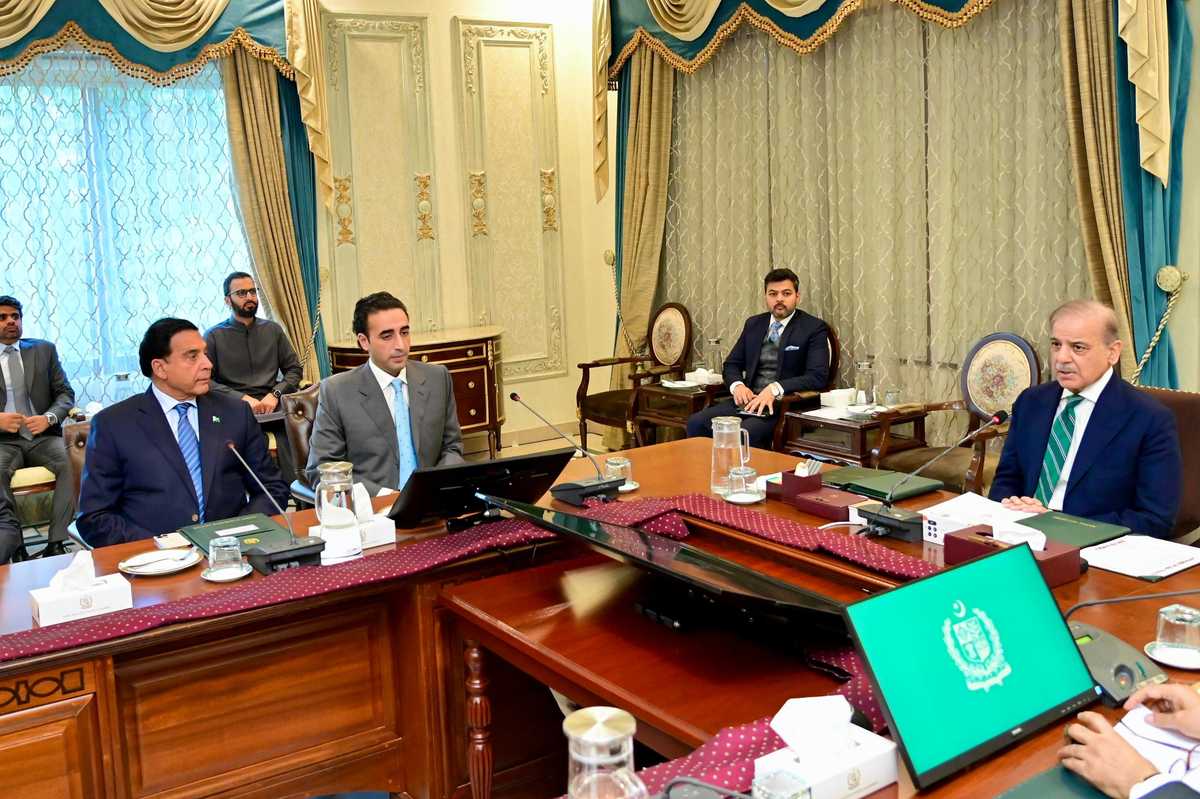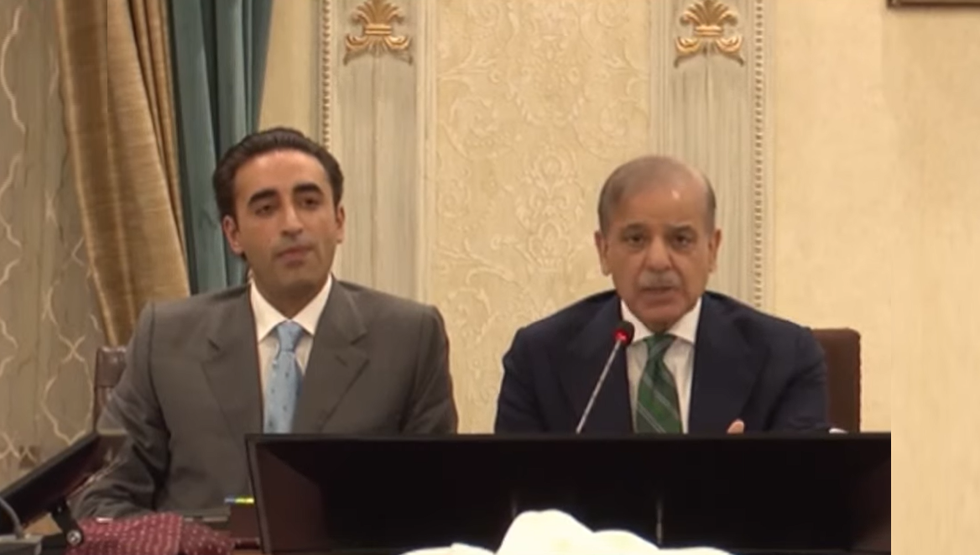Pakistan PM says disputed canal project won’t proceed without provincial consensus
Shehbaz says a meeting of Council of Common Interests will be held on May 2 to discuss the project and decide a way forward
News Desk
The News Desk provides timely and factual coverage of national and international events, with an emphasis on accuracy and clarity.

Pakistan’s Prime Minister Shehbaz Sharif announced on Thursday that the federal government will not move forward with the controversial canals project without the consensus of all provinces.
Speaking at a press conference alongside PPP Chairperson and key coalition ally Bilawal Bhutto Zardari, the premier said a meeting of the Council of Common Interests (CCI) will be held on May 2 to discuss the canal project and decide a way forward.
The CCI serves as the top constitutional platform where the federal and provincial governments jointly make decisions on matters that impact multiple provinces.
The project, which includes the construction of six new canals -- most notably the Cholistan Canal -- has sparked political uproar in Sindh.
Nationalist parties and civil society groups have staged protests across the province, arguing that the project disproportionately benefits Punjab and threatens Sindh’s already scarce water resources. Punjab, however, maintains the project is both legal and necessary for agricultural development.
Amid heightened regional tensions following a recent Kashmir incident and India’s statement on the Indus Waters Treaty, Shehbaz emphasized unity among provinces and adherence to constitutional processes.

“The CCI meeting on May 2 will evaluate the federal government’s decisions, and any move forward will only happen with consensus among provinces,” he said.
Bilawal, appearing visibly serious, thanked the prime minister for engaging in detailed discussions and addressing the PPP’s concerns.
“Your announcement will go a long way in resolving this issue,” he said, adding that any new canal construction must be based on inter-provincial consensus. He also strongly condemned India’s recent move to temporarily suspend the Indus Waters Treaty.
Govt forms committee
After the meeting, a statement from the Prime Minister's Office said that the federal government has decided no new canals will be constructed without the consensus of the CCI.
“The government is actively engaging with all provincial administrations to develop a long-term, unified roadmap for agricultural policy and water management infrastructure across Pakistan,” the statement stated.
It emphasized that the water rights of all provinces are safeguarded under the Water Apportionment Accord of 1991 and the Water Policy of 2018, which reflect the consensus of all stakeholders.
The statement also highlighted the formation of a new committee, representing the federation and all provinces, to address the concerns of all parties. This committee will work on proposing solutions to Pakistan's long-term agricultural needs and water usage, in accordance with the two key consensus documents.
Backlash
Protests erupted on April 18 as thousands of lawyers and demonstrators blocked Pakistan’s main commercial highway, connecting Sindh to Punjab, in opposition to a controversial irrigation project. While smaller protests had been taking place across the province, the highway blockade became the most prominent demonstration.
The sit-in, organized near Baberlo Bypass in Khairpur, was led by the Karachi Bar Association, demanding the cancellation of planned irrigation canals on the Indus River under the Green Pakistan Initiative. Protesters argued the canals will divert water from Sindh, threatening its agricultural lands despite no surplus water in the system.
The blockade had caused major traffic disruptions, with cargo trailers carrying perishable goods stranded for kilometers.
What is the canal dispute about?
The canal controversy stems from claims that President Asif Ali Zardari, who is also the co-chairperson of PPP, approved the project in July 2024 -- a claim he later refuted -- placing the PPP in a politically sensitive position as it tries to navigate its federal responsibilities while maintaining allegiance to Sindh.
Tensions escalated on April 18 when PPP Chairman Bilawal warned that his party might leave the ruling coalition if the canal projects weren't scrapped, branding them a direct threat to Sindh’s already limited water resources. That same day, lawyers began a highway blockade near Baberlo in protest.
Despite the federal government’s assurances that no province’s water would be diverted and its pledge for dialogue -- most recently through PM adviser Rana Sanaullah on April 21-- the protests continued to intensify. The controversy highlighted deepening rifts within the PML-N-PPP coalition, with unresolved power-sharing tensions in Punjab further straining the alliance. However, both PM Sharif and Bilawal attempted today to show that, while not fully resolved, the issue is heading towards a resolution.







Comments
See what people are discussing